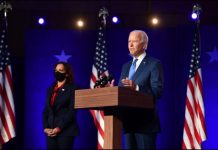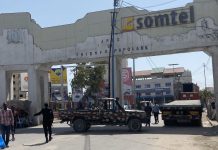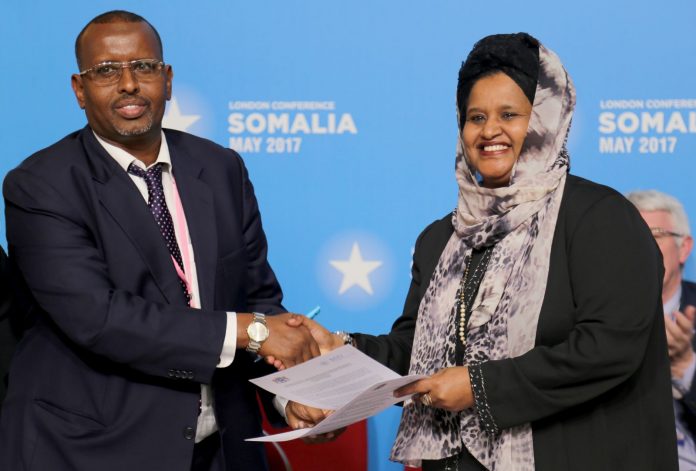By Liban Obsiye
There is an enormous effort been undertaken by the Somali Federal Government to enhance Public Private Dialogue (PPD) in an effort to reassure investors of their reforms and increase domestic revenue. The Federal Government, led by President Mohamed Abdullahi Mohamed “Farmaajo,” has prioritized security, public service delivery, good governance and economic development as key policies. Achieving these requires vast financial investments which must be collected in the form of legitimate taxes from the business community and this group need serious convincing before they part with their cash.
The narrative that held back PPD in the past was one of blame with each side holding the other accountable for disruption and inaction. The business community felt and, to some extent, still feels that they prospered in the worst possible environment without Government assistance and that the Government does not offer them much public services, including security, to warrant tax payments. On the other hand, elements within the Government see the business community as irresponsible, arrogant profiteers who seek to undermine their authority. Neither narrative is helpful for a country which desperately needs to finance its future in an age of dwindling international support, aid fatigue and a shift in interest from Somalia to other troubled spots globally.
Financing Somalia’s future is the first duty of its new Government which has a truly ambitious legislative program. Ambitious or not, the success of any legislative program will only be realized once it is effectively implemented. Effectively implementing policies requires adequate domestic resources which the Government needs to raise from taxes and growing the private sector. The private sector grows with sound targeted support to entrepreneurs, investment in research and development and crucial enablers such as education, skills, health and infrastructure. From all this, it is very clear that the Government and business community need one another to create the win-win environment for their mutual progress and prosperity while also developing their country.
The PPD that has been undertaken by the Somali Federal Government so far has had many mediators and participants, including, The International Finance Corporation, but very little has thus far been achieved. This was further complicated by the recent disputes between the Somali Chamber of Commerce and the Ministry of Commerce which is now resolved and the Ministry of Finance’s renewed efforts to collect taxes from corporations, which is still been resisted by many businesses who have got used to paying negotiated taxes rather than the legally mandated ones.
The role of the Somali State is still in the process of been finalised, but the aspiration of the new administration is that it will be an active one which directly engages in public service delivery while nurturing and supporting free market enterprise. Unlike in the past ideologically crippling Siad Barre regime, the business community’s role and responsibilities are clear today: they can make sizable profit but only while observing the laws of the land and contributing their rightful share in taxes for public service investment which ultimately benefits them. Moreover, the entrepreneurs of Somalia are now, and must continue to be, actively invited to make their valuable contribution to the policy discussions and decisions that effect their future. This is because they are the real experts when it comes to actually doing business in Somalia.
Over 20 years of non-functioning Government is a disaster that needs time to overcome. Government’s cannot suddenly be born again and enforce rules by force. In the absence of Government, rules and practices, sometimes very damaging such as monopoly, poor quality control and corruption, have taken hold. To unfreeze these and instil better economic and fiscal values and policies, the Somali Federal Government must re-double its efforts in the PPD process.
Building trust is a two-way process and both the Government and business community must be ready to engage honestly. However, the Government can improve its credibility by tackling internal corruption and coordinating its actions. At present different Ministries approach the business community individually on narrow topics. This is wasteful and must be replaced with a wider ranging cross-government and agency engagement with a focus on kick starting the Somali economy. A national PPD Technical and Ministerial Committee made up of all stakeholders is key to advancing discussions which seldom progress past false niceties. Knocking on the business community’s door separately selling reforms would annoy them whereas a collective approach would impress and reassure them.
Transparency and clarity are central to building trust. The completion of the Anti-Corruption Law and many other economic and fiscal laws, including the Investment Law, Public Financial Management Law and Procurement Law, is a great start. However, the backbone of corporate governance in Somalia, the Company Law, must be expedited to support transparency and enhance corporate compliance and responsibility. In addition, to further strengthen confidence within the business community, the Somali Government must work towards joining COMESA and other economic bodies and organisations to win export rights and concessions for the business community. Moreover, promoting Somali made goods under the banner of “Make/Made in Somalia” and showcasing Somali goods and potential across the world would accelerate PPD to full partnership between the Government and the business community.
PPD itself can sometimes be exclusionary as only the most connected are often engaged. This approach hurts the smaller businesses and budding entrepreneurs who are the future of the Somali economy. This initial monopoly of the PPD process by big businesses instils the market dominance that makes barrier to entry even steeper for start-ups and smaller businesses. This must be addressed as a matter of urgency perhaps by the creation of a trade organisation like the UK’s successful Federation of Small Businesses. This simple action, alongside improvements in the business registration process, security and investment in skills and education, will improve the ease with which business can be done in Somalia.
Somalis are great storytellers and negotiators. Given this, PPD is something that is easily achievable for the benefit of both the Government, business community and, ultimately, the Somali people. Investment, public services, job creation, strong economic growth and self-sufficiency can only be realised when there is trust between the Government and its business community. A profitable partnership for Somalia’s future is possible. There is no them and us in financing Somalia’s future, only us.
The author welcomes feedback and can be reached through:
@LibanObsiye (Twitter).




























